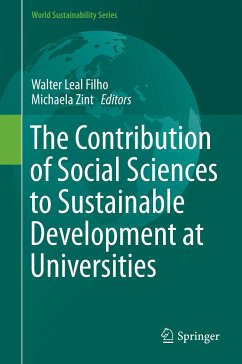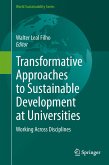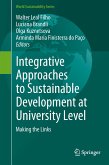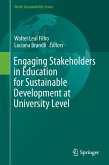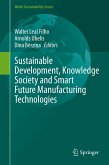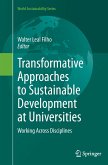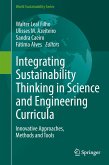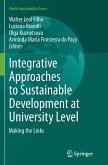This volume is the first of its kind to presentcontemporary, state-of-the-art examples of how social science theories, models,and findings can advance all aspects of campus sustainability, an area that hasso far been largely neglected. The individual chapters reflect the broaddiversity of research on sustainable campus development conducted within andacross basic and applied social science disciplines, drawing on a range ofmethods and case studies from around the world. Institutions of higher educationhave been among the leading promoters of sustainable development. However,efforts to transition to sustainability have been largely dominated bytechnological "solutions" and universities and colleges are increasinglyrecognizing that this transition cannot be achieved without attention to thehuman dimension. Administrators, campus sustainability officers and otheruniversity staff, faculty members and students, as well as alumni and externalconstituents all help to shape which sustainability innovations and initiativesare considered and pursued, and their participation determines the ultimatesuccess of sustainability efforts. The book's individual contributionsillustrate how the social sciences can broaden visions of what may be possible,identify the advantages and disadvantages of different instrumental andemancipator approaches, evaluate interventions' effectiveness, and offerprocesses for learning from mistakes and successes in ways that supportcontinuous advances toward sustainability. Given that the majority of socialscience research stems from universities, the level of trust in theseinstitutions, and their mission to develop societal leaders, higher educationinstitutions are ideally suited for testing, assessing and modeling the socialinnovations needed to achieve sustainability on campuses and beyond.
Bitte wählen Sie Ihr Anliegen aus.
Rechnungen
Retourenschein anfordern
Bestellstatus
Storno

